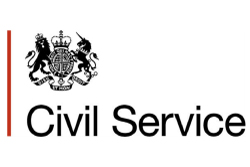Civil Service Verbal Test (CSVT)
Page contents:
Jump to:About Civil Service Verbal Reasoning Tests
The UK Civil Service are always searching for employees who are highly literate for compiling and analysing reports used in making crucial decisions every day. Applicants will have to excel in a verbal reasoning test to progress in the application process for many positions in the UK Civil Service.

The Civil Service use the following tests in their selection process:
- Numerical reasoning test
- Verbal reasoning test
- Behavioural questionnaire
- Situational judgement test
- E-tray
| Assessment section | Recommended Practice Pack |
|---|---|
Civil Service Verbal test | Verbal Test Pack
|
Civil Service Situational Judgement test | Situational Judgement Test Pack
|
Bundle Pack | Bundle Pack
|
Verbal reasoning tests are a fair and objective way for the Civil Service to assess many applicants applying for a multitude of job roles at different levels, with each candidate bringing a different set of past professional experience and having obtained various qualifications. From analysing the results of a standardised numerical reasoning test, the UK Civil Service can identify candidates which would do well in a certain role and not in others. Professional psychometric tests are an additional tool to determine more about a candidate than would be possible from a typical interview or straight from their CV.
Often, the UK Civil Service will ask applicants to take an online verbal test, which they've named the Civil Service Verbal Test (CSVT) which can be done from any suitable device with an internet connection. The Civil Service Verbal Test is used at the beginning stages of the application process. To progress to subsequent rounds of the job application process you will have to achieve a minimum score (being in the top 50% of applicants's scores is a standard cut-off, however, it can be higher or lower depending on the role and the intake). Further along in the selection process you might be asked to attend an assessment centre or interview and you could be asked to sit the Civil Service Verbal Test again. This is so the UK Civil Service can verify the person scoring highly in the test is indeed the person applying for the job.
The UK Civil Service have been very kind and written extensively on the application process and detailed what you can expect starting on this guidance page of their site on preparing for the Civil Service Verbal and Numerical tests.Civil Service Application Process
Stage 1
| Online Application | You will need to complete an online application form, in which you will need to detail your educational history and choose the positions you would like to apply to. |
|---|
Stage 2
| Online Situational Judgement Test and Behavioural Questionnaire | Shortly after submitting your application, you will automatically be invited to take a Situational Judgement test online under timed conditions. The test is quite short, and most candidates complete it under 30 minutes. The second test will be a behavioural questionnaire. You will have 5 days from submitting your application to complete these two tests. |
|---|
Stage 3
| Online E-tray test | If you have met the required criteria to pass the situational judgement test and behavioural questionnaire in the previous stage, you will be asked to take part in an e-tray test. These tests are simulations of an e-mail inbox, and all the material will be relevant to the Civil Service. This exercise will last for 80 minutes. You will get the opportunity to practice a few questions beforehand, and the Civil Service have some useful information available. |
|---|
Stage 4
| Video Interview | The video interview is described as a one-way recording. Typically, in a video interview you will be given a set of questions to respond to. You will then use the software provided to record your responses to these questions. You will be asked 9 questions and the interview should take about 30 minutes to complete. Use the freedom here to plan your responses to the questions well, even if that means redoing the recording. You will often get the opportunity to view and check the recording before submitting it. Ensure that your answers are relevant to the questions asked. The Civil Service state that you can record your responses from your mobile phone, tablet or any PC with a webcam. |
|---|
Stage 5
| Verbal and numerical reasoning tests | After having successfully passed the situational judgement test, behavioural questionnaire and the video interview, if you have applied for a Finance or Commercial role, you also be asked to complete a Numerical test after this stage. The numerical reasoning tests is provided by Cubiks and will assess your ability to reason logically, and analyse numerical data, which are very important skills to have for any financial position. You may also be invited to take a verbal reasoning test online, the CSVT. This will not be under timed conditions although most candidates answer all questions within 15 and 45 minutes. |
|---|
Stage 6
| Assessment Centre | Once you've managed to win over the Civil Service with your video interview responses, your scores in the SJT, behavioural questionnaire (and the numerical reasoning tests), the final stage will require you to attend an assessment centre and take part in an interview, a group, an analysis and a leadership exercise. During the group exercise, the assessors will be evaluating how well you form relationships with other, new people, and how you contribute to the team. A detailed guide has been produced by the Civil Service, which can be viewed, downloaded and printed from. |
|---|
Join those now working at top companies
Don't settle for 'try again next year'. Let us help you pass employer tests first time.
Try now for free
The Civil Service verbal test questions
Like most verbal reasoning tests, the one used by the Civil Service just asks you to respond with whether you believe a statement is true, false or you cannot say either way, based on the information provided to you. This is a simple multiple choice answer option and you should try to answer all questions correctly. There is not as great a need to focus on time with this test, but do not take too long. With practice you will become familiar with the type of verbal reasoning tests used by organisations such as the Civil Service.
Verbal reasoning tests and who uses them
Companies are using verbal reasoning tests more and more in their application process that candidates must go through. A person's score in a verbal reasoning test is a good indicator of their performance in the workplace. This is important in any sector or position.
The Civil Service use verbal reasoning tests as part of their recruitment process to help them select the best candidates for a particular role.
So, as a graduate or senior candidate applying for a job at the Civil Service you might feel like the verbal reasoning test is a tedious obstacle, but you should bear in mind that the Civil Service are asking you to complete the verbal reasoning test as much for your own benefit as theirs; if you are not suitable for the role, a psychometric test will usually identify this. Research has shown that psychometric tests, such as those used by the Civil Service, are a better predictor of job performance than traditional selection metrics such as level of degree achieved.
What you should know before taking your Civil Service Verbal Test
The CSVT is a very standard verbal reasoning test. Each question will have one answer, either true, false or cannot say. You will be presented with passages of text and the answer to each question can be found in the passage. The same passage will only be used for a couple of questions before a new one is presented to you. Read this thoroughly and multiple times as the Civil Service Verbal Test does not have a time limit. These questions can be difficult when the answers aren't immediately obvious and require you to view the information in the passage from a different perspective. Here's a simplified step-by-step process to answer verbal reasoning test questions:
- Read the passage through once the first time you are shown it
- Read the question
- Pick out keywords
- Locate and re-read any sentences which contain keywords from the question
- If it's tricky to say, eliminate any answers that are definitely incorrect
- Which of the remaining options is the most correct
Answered questions
Are these tests suitable for the CSVT?
Yes, the Civil Service use True/False/Cannot say style verbal reasoning tests to assess applicants in the recruitment process. The practice tests we provide have been designed are in this exact same style to create an environment similar to the real assessment. This provides you with confidence that the questions you practise with us now are an accurate reflection of the real assessment.
How difficult are your tests?
The same difficulty as real tests. Generally real employer selection tests don't differ that much in terms of difficulty which is why they compare your score against norm groups. Our practice tests are pitched roughly at graduate level, but this means they are actually suitable for preparing for all levels of job: entry; apprentice; graduate; senior; director.
Are they compatible with my Mac / Tablet / Phone?
Yes, and PC, and Linux and smartphone and Android and...everything. Our practice tests will run on all systems and they are responsive so they will work well on tablets and smartphones too!
How many times can I take the tests?
Unlimited. You can take our practice tests as many times as you like; there is no limit. But to be honest, after taking the same test a few times you start to remember the answers, so that’s why we have lots of tests.
